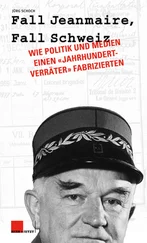You know now why you’re here, right? Loreen finally said. I know you do. You’re not a dumb girl.
Fan nodded and said she did.
You’re going to be that woman’s helper. She’ll show you how to take care of the house. You’ll train under her and then someday take over when she retires. And you can live here the whole time, probably right in this room. But I will tell you this. These people don’t have their own children. It’s just the two of them. So who knows, if they really take to you, maybe someday all this will be yours. Can you imagine that?
Fan said she couldn’t, but that she understood. She knew she wasn’t going to live at the Smokes forever, so this was the best way, helping get the equipment for the new well, and especially Sewey his medicine. The one sad thing was that she would never see him or Eli or the others again.
Loreen pressed her hand between hers and, with what Fan could sense was genuine gratitude, said she would let them all know how she felt. That was when Quig knocked on the door and poked his head in to say they should go downstairs. Like Loreen, he looked chipper after washing up, like his usual self again, if much more nicely groomed, the one difference now being that he wasn’t really looking at her, seemingly unable to meet her eyes.
In the airy living room Mister Leo greeted Quig like he was an old childhood friend, taking both his hands for a hearty shake and addressing him by his full surname, Quigley. Quig reintroduced him to Loreen, whom he smiled at but clearly didn’t remember, and then to Fan. Mister Leo bent down with his hands extended and said, What a darling girl.
Loreen nudged her and she went to Mister Leo, who was perhaps ten or fifteen years older than Quig, though he looked just as young if not younger, being well fed but still impressively fit. Fan, like any of us B-Mors, would not have ever encountered such a person; the directorate people we might come across in the facilities or observing us in the malls were Charters, yes, but they were often technical types, engineers and accountants who seemed always tightly wound and focused, unlike this Mister Leo, who exuded a pure easeful sense of confidence and command and ever rightful ownership. He was very handsome as well and could have been spliced right into a spot for a supercar or luxury clothier, with his strong chin and full head of salt-and-pepper hair and startling cobalt eyes that matched the face of his bulbous platinum-cased diver’s watch. He was dressed in a silken black mock turtleneck and pressed black jeans with an alligator belt and he wore sleek tasseled black loafers made of a leather whose texture even from a distance looked to be extra-buttery and soft, which it was. He clasped Fan’s cheek and she braced at the surprisingly rough nubs of his fingertips on her jaw, exerting the subtlest pressure. Then he let her go. Mala brought out a tray of glasses of Champagne, and one with mango juice for Fan, and they followed Mister Leo as he showed them the artworks around the room, an abundant collection of sculptures and paintings and objets d’art. He walked with a limp — the leg Quig had saved — but not in the least pathetically, his gait more like it was lingering intentionally than it was skipping a measure. The art was pleasing enough to Fan, who didn’t know the first thing about what she was seeing; obviously Loreen didn’t much care. Quig, however, was quietly amazed, his eyes widening at certain pieces, as if he’d seen them before only in museum catalogs. Mister Leo was talking about a painting of the Italian countryside circa 1890s, highlighting its use of heavier brushstrokes and purer colors, when Fan glimpsed Mala walking off with the empty tray down the other end of a hall. She slipped away when they had moved on to a tabletop sculpture of a very skinny, very elongated figure and found Mala in the kitchen, working at one of two stainless-steel-topped islands.
The woman was alone in the immense, brightly lighted space, which felt to Fan more like a testing laboratory than a place to prepare anything edible. A steady draw on the air made it cool and dry and odorless. When Mala saw her, she smiled and motioned for Fan to come forward. Why don’t you help me? she suggested. She was making various canapés and gave Fan the cookie press to cut out the last few rounds of cheese and smoked meats and toasts. They assembled the components on the toasts as well as on slices of cucumber, and once they filled the appetizer tray, Mala asked Fan to bring it out to the others.
Mister Leo was delighted at the sight, giving her an approving clap-clap, and saying that if she would rather keep Mala company than look at boring art she should. Fan nodded. When she returned to the kitchen, Mala was on to getting one of the dinner courses ready, a salad of tomatoes and fennel and fresh mint. Fan must have paused, for the produce surely originated from a place just like B-Mor, if not B-Mor itself, and if she wasn’t recalling how Reg would test the ripeness of the fruits with his long, skinny fingers and in his joking drawl announce Yup or Nope or Maybe, how could she not think about the members of her household and their tireless labors in the facilities? She missed them and had even cried once early on at the Smokes after spooning out dinner from yet another blackened can, her heart heavy for the clinging odor of fry oil in their cramped row-house kitchen, but the truth was that she missed her own work of diving in the tanks just as much, if not more; it was in the work that she came closest to finding herself, by which we don’t mean gaining “self-knowledge” or understanding one’s “true nature” but rather how at some point you can see most plainly that this is what you do, this is how you fit in the wider ecology; in the water she felt fine-tuned, most thoroughly alive, for she could gauge the hardness and pH and trace salinity simply by how it played between her fingers, how it tingled her cheek; she could tell by how the fish were schooling whether they were hungry or stressed or content. And if all of us thought of our work more like this, wouldn’t we be better off? Although certain wider questions can needle if you let them: How did this ecology come to be? Is it the one we wish to endure?
Mala was surprisingly talkative as she readied the other dishes for dinner, going over unprompted how she had prepared each one with careful attention to healthfulness. It was all very fresh and vibrant and delectable looking, but afterward Fan had to say that none of it was half as tasty as she expected it to be, though she couldn’t exactly say why. It was seasoned enough and not unusually bitter or sweet, but there was something fundamentally sterile about it, as if the food had not been touched by human hands. Mala, of course, was touching it, and now so was Fan, having been enlisted to chop some herbs to sprinkle on the pasta, and ladle a dollop of sauce on the chicken pieces. Mala seemed to know that she was originally from a facility and didn’t ask about it or why she was with Quig and Loreen, only inquiring whether it was still the case that facility couples were encouraged to have at least four children and received special bonuses for having more, which Fan informed her was no longer so, given the gradually declining need for workers since the worldwide recession began, now quite a number of years ago. In fact, new couples were taxed on the third child and thereafter to offset the costs of health care and schooling and training. This seemed to intrigue Mala, and Fan wondered if she had been born in a production settlement, too. She was an Asian of some kind but her skin was quite dark and her hair wiry and thick and she didn’t look like she was of New Chinese blood. There were some facilities that had experimented with bringing in groups from places like Vietnam and Indonesia and the Philippines but that didn’t continue, often because there was trouble integrating them with our clans, both in the neighborhoods and on the facilities floors. They were eventually forced out, and there was a period of much strife and even violence and some bloodshed, worse than what happened between the natives and originals way back when, but soon enough it was done. Yet Fan still couldn’t help but feel an affinity for this woman, maybe it was the one-piece uniform so much like what Reg and his workmates wore; or her simple, unassuming expression; or that she chewed on a strip of dried ginger, just like Fan’s grandaunt used to do, her breath always spiced and aromatic. Mala also had these wonderfully petite hands like Fan’s, much smaller than it seemed they ought to be given her otherwise normal size, though looking very sturdy as well, like they could manage whatever task or operation that might be necessary.
Читать дальше












